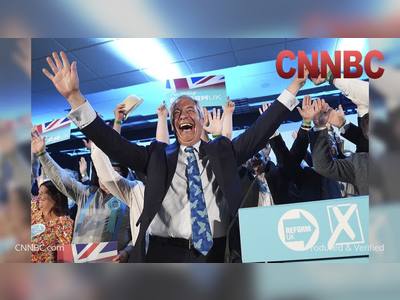Indonesia’s Rage Boils Over: Deadly Protests Erupt Amid Lawmakers’ Golden Perks
Protests sparked by lavish housing allowances for MPs turn violent after a delivery driver is killed, testing President Prabowo’s leadership.
Widespread protests have engulfed Indonesia as public fury over lawmakers’ generous housing allowances—roughly fifty million rupiah per month—boils over.
This sum, nearly ten times the Jakarta minimum wage, triggered mass demonstrations beginning last week in Jakarta and rapidly spreading to thirty-two of the nation’s thirty-eight provinces.
The unrest marks the most serious civil upheaval Indonesia has faced in recent memory under President Prabowo Subianto’s nearly year-old administration.
The situation turned tragic when a twenty-one-year-old motorcycle rideshare driver, Affan Kurniawan, was run over and killed by a police armoured vehicle during a clash outside parliament.
His death ignited nationwide outrage and amplified the protests, which have since led to arson attacks on police stations and government buildings.
Security forces responded with force.
Police used tear gas and rubber bullets near campuses in Bandung, drawing sharp criticism from rights groups and the United Nations for excessive tactics and reports of arbitrary detentions.
At least ten people have been killed, over twenty remain missing, and more than three thousand individuals have been arrested nationwide.
President Prabowo has taken steps to quell the unrest: he announced the suspension of the housing allowance, canceled MPs’ overseas trips, launched a transparent inquiry into Kurniawan’s death, and deployed the military to restore order.
Yet his reference to protest violence as “riots” potentially verging on “treason” drew rebuke from human rights advocates, who argue such language fails to address core grievances or uphold democratic dialogue.
Protesters have consolidated their demands under the rallying call of “17 plus 8 Demands,” pressing for urgent reforms ranging from police accountability and anti-corruption measures to social welfare improvements and institutional transparency.
Analysts warn that without delivering meaningful economic relief and structural reforms, President Prabowo’s popularity and political stability may be at stake.
The protests—rooted in economic hardship, public distrust, and perceived elitism—reflect a growing rift between Indonesia’s leadership and its citizens.
The government’s response in the coming days will shape both its domestic legitimacy and international standing.
This sum, nearly ten times the Jakarta minimum wage, triggered mass demonstrations beginning last week in Jakarta and rapidly spreading to thirty-two of the nation’s thirty-eight provinces.
The unrest marks the most serious civil upheaval Indonesia has faced in recent memory under President Prabowo Subianto’s nearly year-old administration.
The situation turned tragic when a twenty-one-year-old motorcycle rideshare driver, Affan Kurniawan, was run over and killed by a police armoured vehicle during a clash outside parliament.
His death ignited nationwide outrage and amplified the protests, which have since led to arson attacks on police stations and government buildings.
Security forces responded with force.
Police used tear gas and rubber bullets near campuses in Bandung, drawing sharp criticism from rights groups and the United Nations for excessive tactics and reports of arbitrary detentions.
At least ten people have been killed, over twenty remain missing, and more than three thousand individuals have been arrested nationwide.
President Prabowo has taken steps to quell the unrest: he announced the suspension of the housing allowance, canceled MPs’ overseas trips, launched a transparent inquiry into Kurniawan’s death, and deployed the military to restore order.
Yet his reference to protest violence as “riots” potentially verging on “treason” drew rebuke from human rights advocates, who argue such language fails to address core grievances or uphold democratic dialogue.
Protesters have consolidated their demands under the rallying call of “17 plus 8 Demands,” pressing for urgent reforms ranging from police accountability and anti-corruption measures to social welfare improvements and institutional transparency.
Analysts warn that without delivering meaningful economic relief and structural reforms, President Prabowo’s popularity and political stability may be at stake.
The protests—rooted in economic hardship, public distrust, and perceived elitism—reflect a growing rift between Indonesia’s leadership and its citizens.
The government’s response in the coming days will shape both its domestic legitimacy and international standing.












